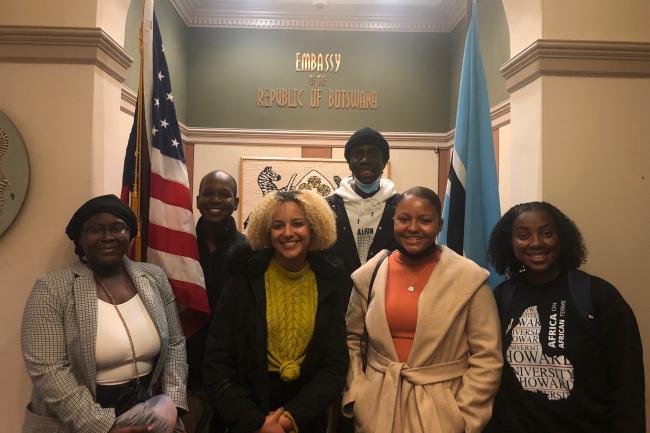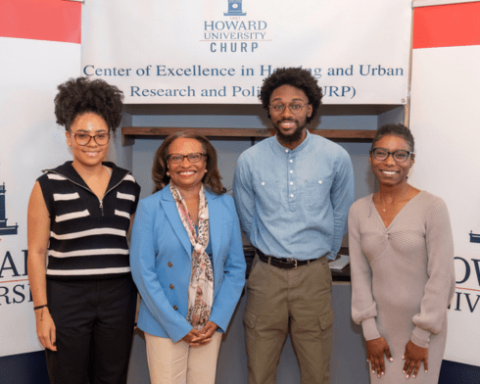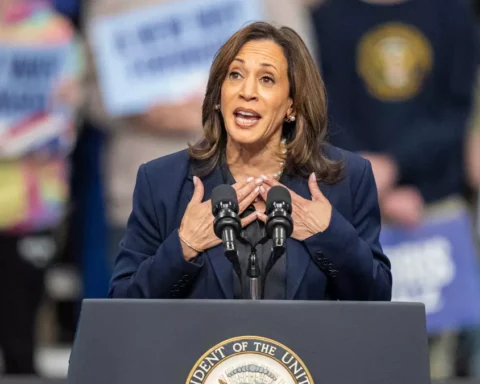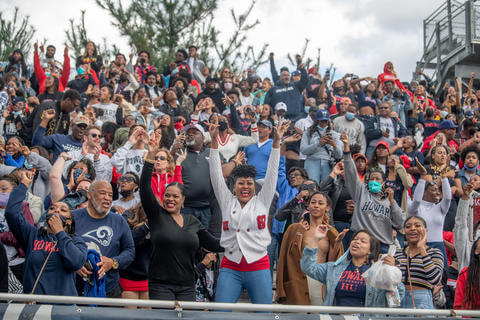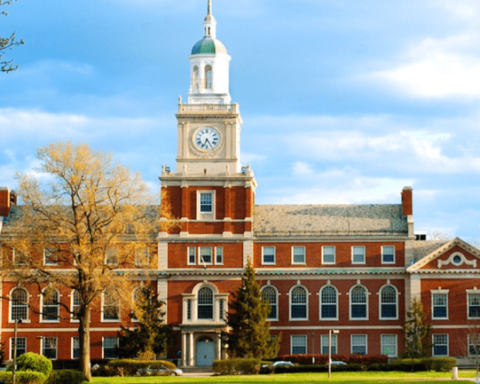By Tammara Sutton
The Ralph J. Bunche International Affairs Center (RBC) has a compelling mission dedicated to “preparing and empowering students to be globally competent leaders with the capacity to affect change at home and abroad.” Known for its interdisciplinary approach and wide array of international affairs programs and activities, the Center provides numerous opportunities for students and faculty to learn about and interact with people from other countries. Faculty partnerships with overseas NGOs and government agencies, on-campus talks with dignitaries like the ambassador to France, and panels exploring global topics like sustainability and “water and conflict” all happen at Howard and for members of the Howard community thanks to the efforts of the Center.
But when the COVID-19 pandemic hit, limiting opportunities for Howard students to explore the world, this mission became even more critical to achieve. While study abroad was halted, Tonija Hope, director of the RBC, set her sights on curating equitable programs that could bring the world to Howard students.
In pursuit of this vision, she preferred not to promote virtual exchange programs, setting the Bunche Center and Howard apart from other universities.
“I think there is a place for virtual exchanges, to embrace technology as a pathway alternative to going on a flight. However, to end with a virtual exchange and call that a study abroad experience, I refused to accept that. We did not embrace that at the RBC,” explains Hope.
She noted that virtual exchange programs have the potential to be inclusive by allowing many more students to access international education, but if these programs are not carefully curated, they can perpetuate and exacerbate existing inequities by suggesting that students who cannot afford to travel can opt for virtual exchange, while those who can afford the cost will physically travel abroad.
Before the pandemic, only 6.4% of Black students at universities across the United States participated in study abroad due to a host of challenges, including cost barriers. Since the onset of the pandemic, this number significantly dropped. As students were permitted to study abroad when pandemic-induced restrictions were lifted, Black students have been slower to return to study abroad.
Fueled by the center’s mission, Hope sought out an alternative approach to international education that would break equity barriers and prepare Howard students for global leadership. In the pandemic, the team developed a D.C. Embassy Walk program that provided students with the opportunity to safely visit embassies and interact with embassy staff. Hope and her team saw the impact that this program was having on Howard students, explaining that “students have been able to have experiences that they didn’t think that they would ever be able to have.” By providing students with access, opportunity, relationships, and cultural programming during COVID-19, the Center’s purpose came to life in a more profound way.
Today, when Hope reflects on the history and impactful work of the Center, she not only wants the Howard community to know how important it is for students to possess the competencies of global citizens, but she also hopes that the Howard community will join hands with the Center to help nurture students to be globally competent leaders across campus and in the classroom. She states, “I want everyone to understand that they have a role in it. This is the most important part. I would like everyone to understand that this is not just a job for the Bunche Center. It’s a job for the whole Howard community. And the whole Howard community can benefit from it, not just students.”
In 2023, the center will celebrate its 30th anniversary. Hope encourages the greater Howard community to participate in its programs, explore volunteer opportunities, including mentorship and financial support.

